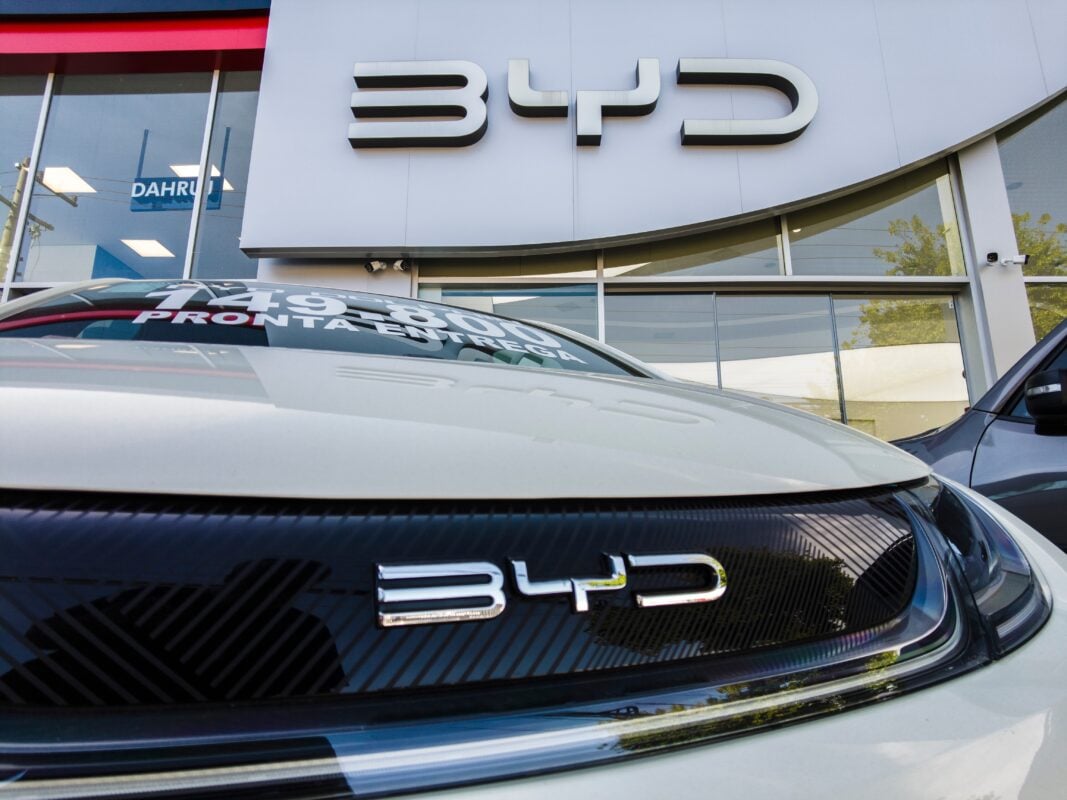TLDRs;
Contents
- BYD secures 27% of Hong Kong’s EV market in H1 2025, surpassing Tesla.
- Sealion 07 becomes BYD’s top-selling model with 3,676 units sold.
- Chinese EV makers, including BYD and Zeekr, gain momentum in Hong Kong.
- BYD’s smartphone-car connectivity boosts brand appeal across its entire vehicle lineup.
Chinese electric vehicle giant BYD has officially become Hong Kong’s top EV brand for the first half of 2025.
According to the city’s Transport Department, BYD accounted for 4,902 of the 18,356 private EV registrations recorded during this period, representing a dominant 27% market share. This performance edges out Tesla, which registered 3,889 units, reversing 2024’s trend when Tesla nearly doubled BYD’s numbers.
BYD’s success in Hong Kong underscores the brand’s growing appeal in global urban markets, even as it faces trade barriers in Western nations like the U.S. and EU. Local demand, tech integration, and competitive pricing are driving BYD’s expansion in Asia, with Hong Kong emerging as a key battleground.
Sealion 07 Leads the Charge
The standout performer in BYD’s lineup was the Sealion 07, a mid-size SUV launched in late 2024. This model alone contributed 3,676 units, making it the top-selling EV in the city.
The Sealion 07 combines affordability with advanced features, making it particularly appealing in Hong Kong’s dense urban environment. The vehicle’s size, efficiency, and integration with smart technology have made it a favorite among middle-class consumers and eco-conscious professionals.
Alongside Tesla and BYD, the top six EV brands, Zeekr, Toyota, and Xpeng among them, captured 66% of all private EV sales, showing the market’s increasing concentration among a few key players. However, it’s Chinese brands like BYD and Zeekr that are rapidly closing the gap and even overtaking legacy and Western automakers.
Smartphone Connectivity Across All Models
Beyond raw sales numbers, BYD’s innovation strategy is also contributing to its competitive edge. On July 15, 2025, BYD launched a smartphone-car connectivity feature compatible with popular brands like Huawei, Xiaomi, Oppo, and Vivo. The update is now available across all its models.
This feature allows users to connect their smartphones directly to their BYD vehicles, offering capabilities such as remote vehicle access, smart diagnostics, and personalized driving preferences. The move not only enhances user experience but also strengthens BYD’s positioning in the connected vehicle space, a market expected to reach $568 billion by 2035.
Chinese EV Makers Gain Traction Globally
While geopolitical tensions and tariffs have limited access to Western markets, Chinese automakers are thriving in regions like Southeast Asia, the Middle East, and now Hong Kong. BYD’s integration of consumer electronics with automotive design is proving to be a winning formula.
Moreover, the smartphone integration feature opens up new revenue models through subscriptions and app-based services, pushing connected cars from cost centers to potential revenue generators. Analysts estimate that connected features could generate up to $1,600 in revenue per vehicle annually.
As the EV market matures, it’s clear that success will be determined not just by battery range or price, but by who can build the smartest, most connected car. And right now, BYD is ahead of the curve.


